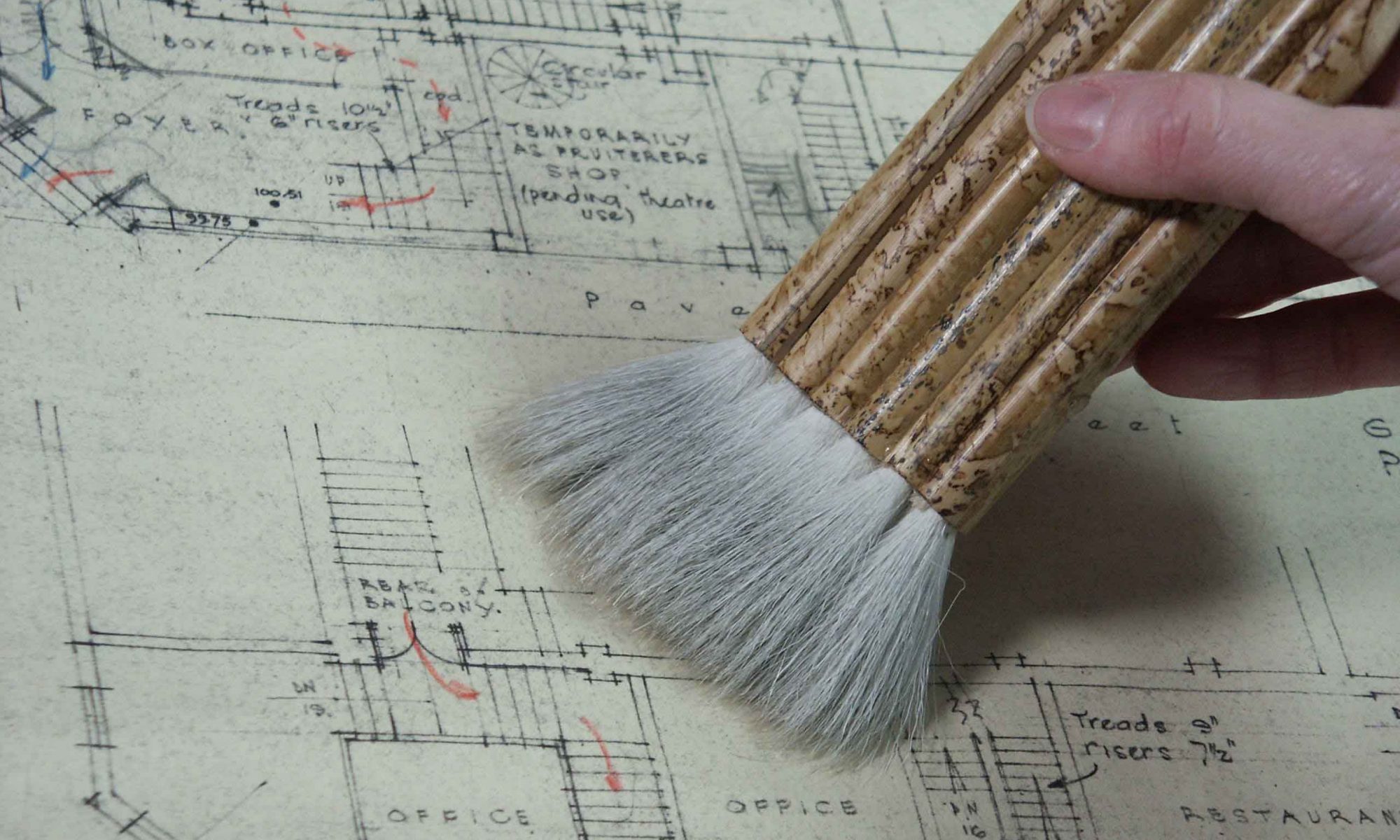Session 6 on Zoom 25th September Sewing Pamphlets
2.30 to 3.30 – Zoom workshop, hosted by Restoration Trust (RT) and presented from London Metropolitan Archives (LMA)
We’re Back! After lockdown, which closed the archive and turned the world upside down for a while, we have, like so many others, re-surfaced to find that we must function differently. The Zoom meeting room is having its moment and we have joined the on-line community that is the ‘Zoom workshop’. Its not the same as our face-to-face sessions but our first meeting went well, with positive and encouraging feedback.
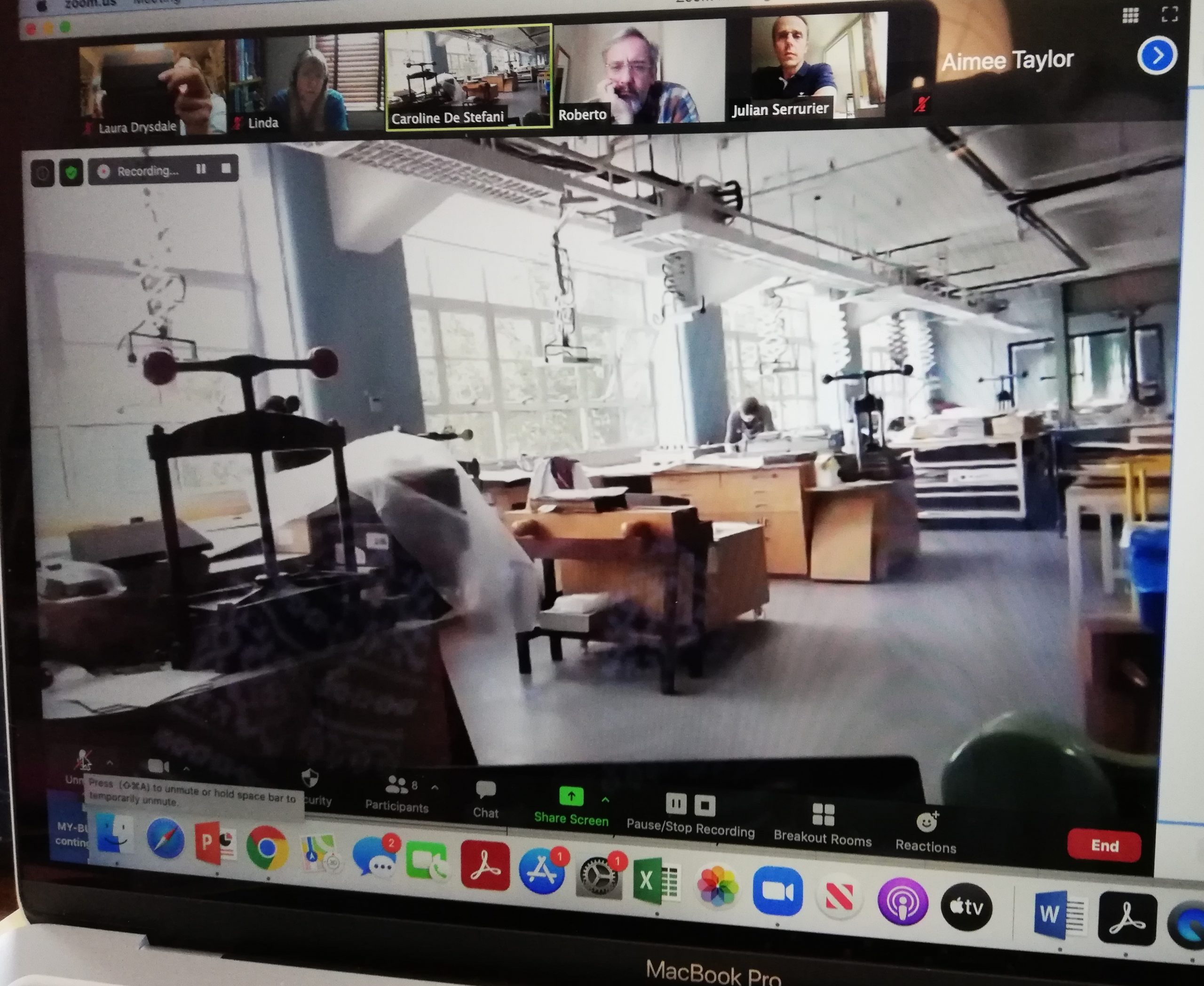
Following introductions and a summary of the session, Caroline, the LMA studio manager, took us on a tour of the conservation workshop. LMA is located in a re-purposed printing works so the rooms are large and airy with high ceilings and an open plan arrangement. Perfect set-up for a conservation studio.
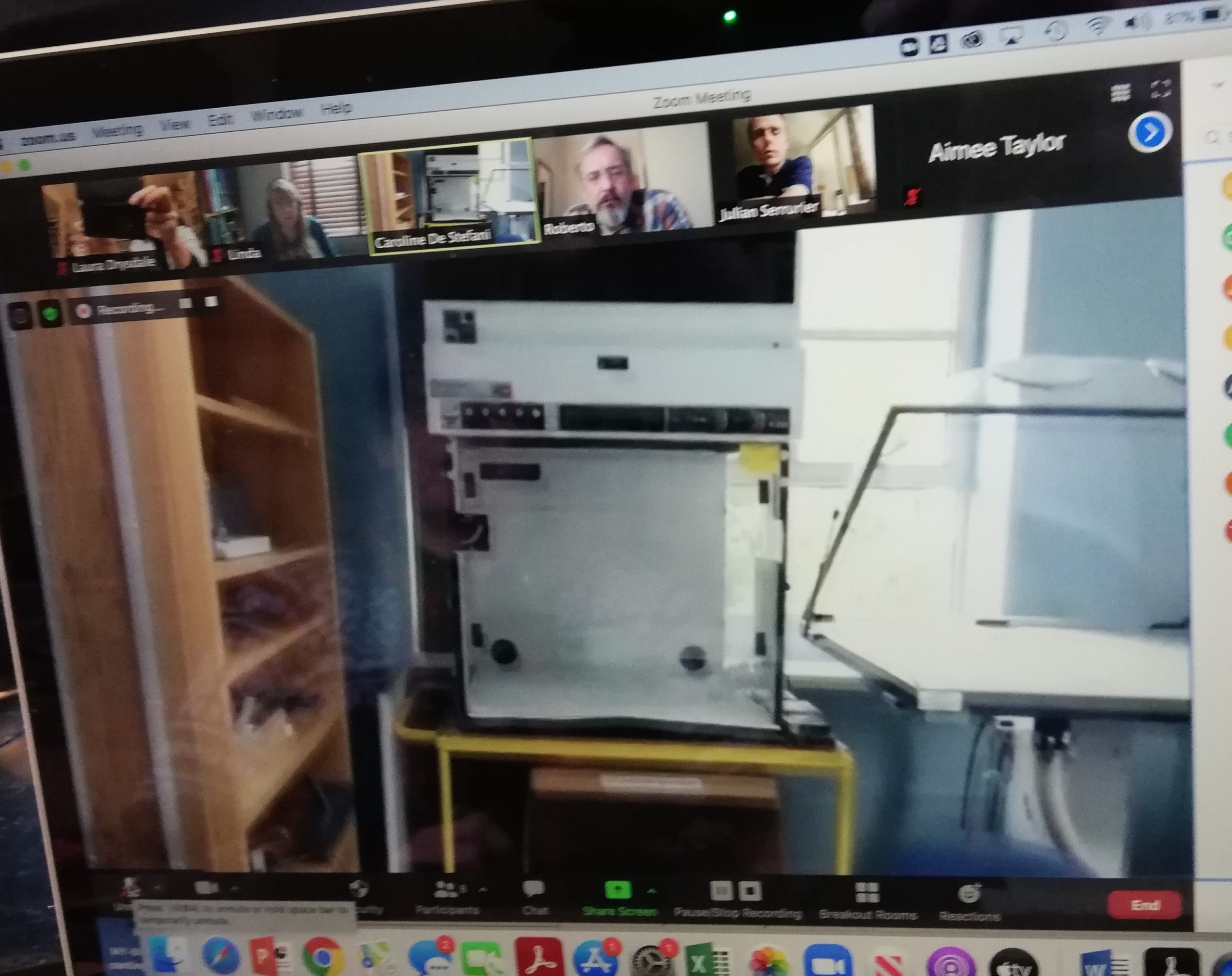
Caroline used her laptop on a trolley to prevent any shaking and we got both an overview of the room and close-up views of the various types of equipment; sink, fume cupboard, presses etc.
Each participant had been posted a package with materials for the workshop and after the tour Caroline went through the contents and explained why a paper or book conservator would want to know how to sew a pamphlet.

The package contained thread, a needle (with a small piece of cork on its sharp point), cut sheets, written instructions and a template for the sewing stations.
The cover images are of the hospital building from the St Luke’s hospital collection we have been working with.
For more information on history of the hospital see LMA’s Principle Archivist Phillipa Smith’s blog about St Luke’s hospital on The Wellcome Trust website;
http://blog.wellcomelibrary.org/2015/05/the-great-and-the-good-visit-the-asylum/
The demonstration of how to sew a 5 hole pamphlet worked well, and was straightforward to do, but there is no doubt that was down to the preparation in the packages plus the concentration and skills of the participants.
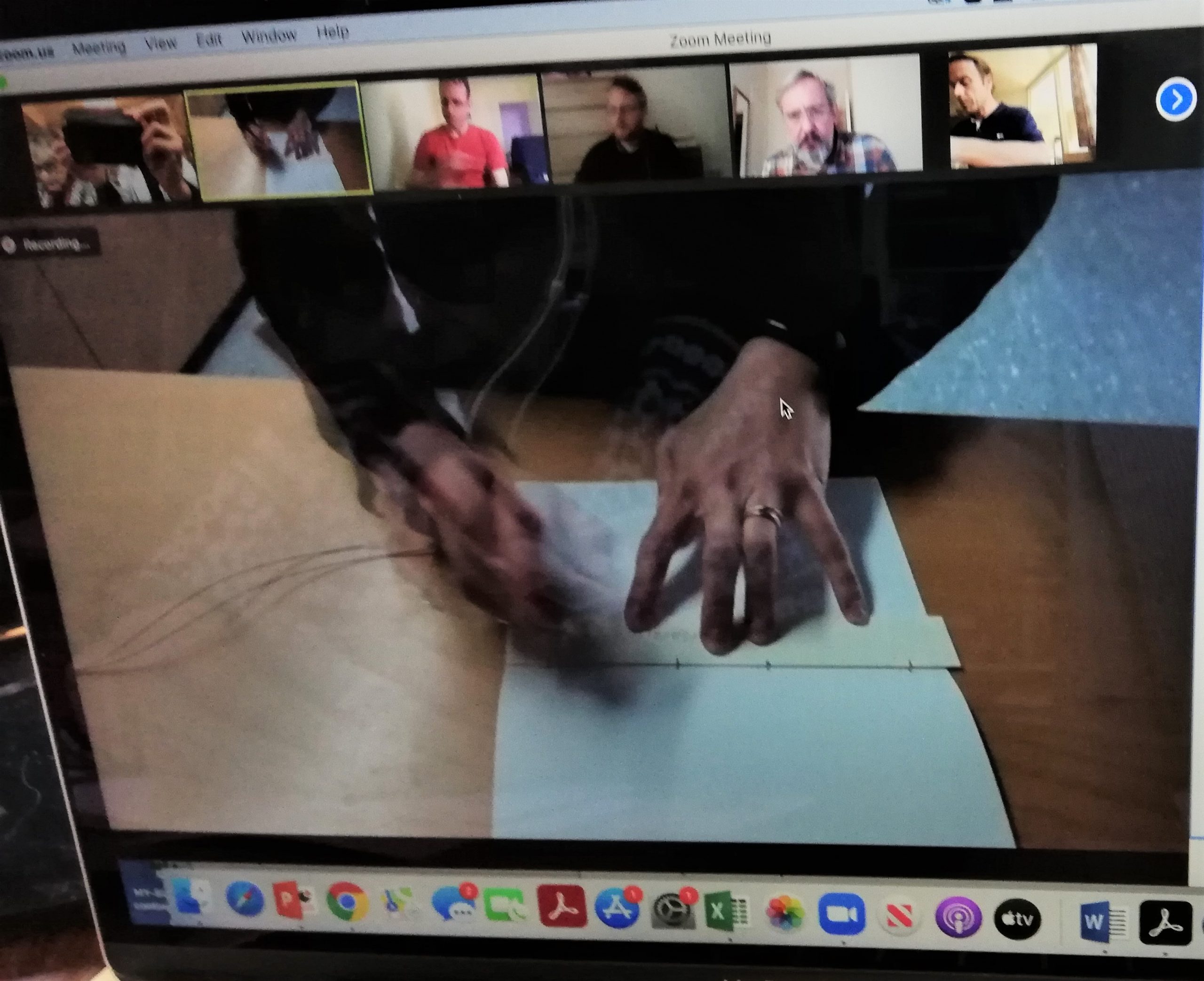
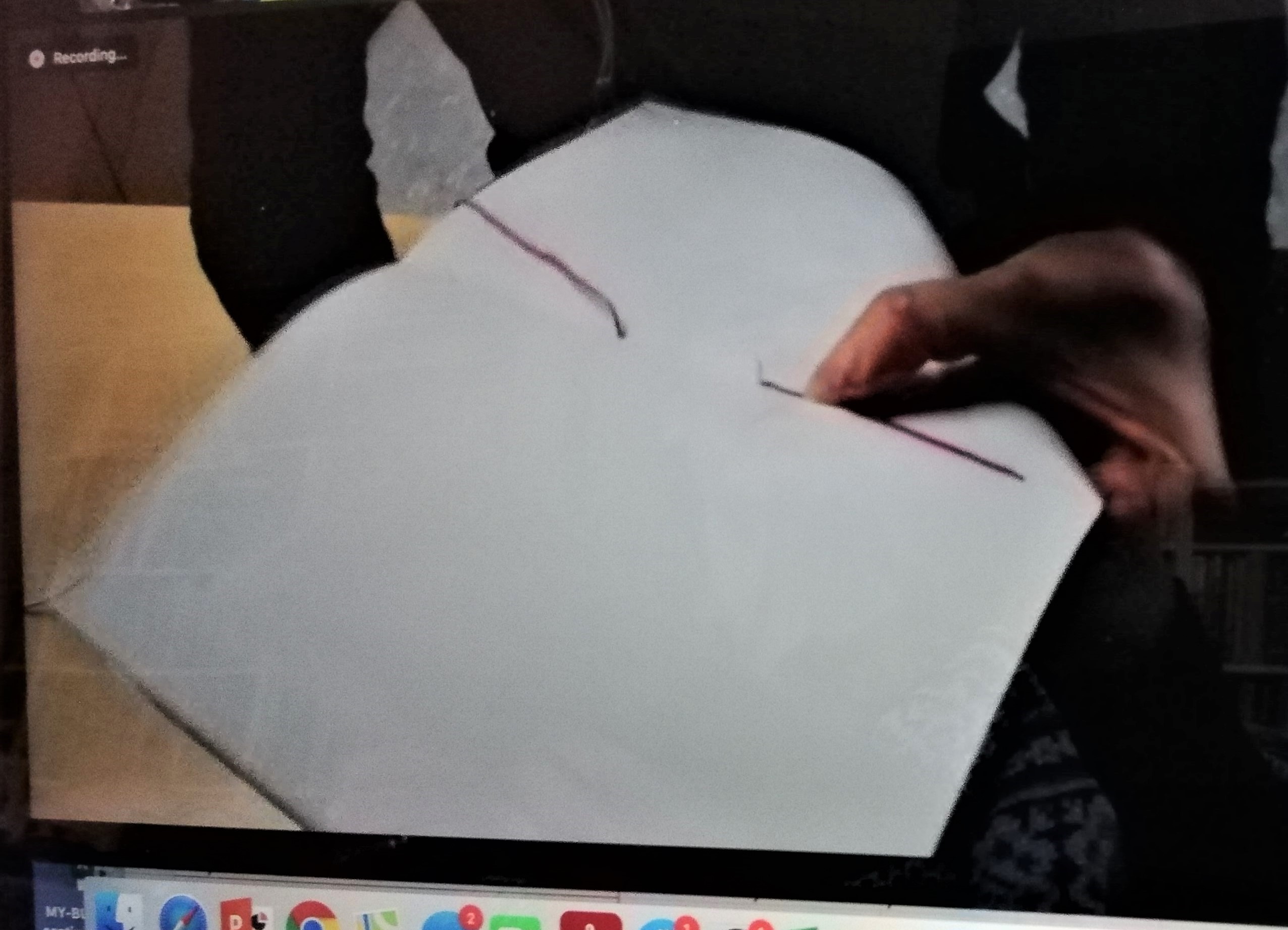
We were pleased by the good feeling and input from all, and with both new and existing participants it will be interesting to see how the Zoom meetings compare with our face-to-face sessions in January and February.
Certainly, there was less opportunity to chat in the virtual space, or follow-up on chance remarks but hope that as we get more used to this way of working, we can find more ways to foster interaction and discussion.
Helen Lindsay, RT Project Worker and Paper Conservator
